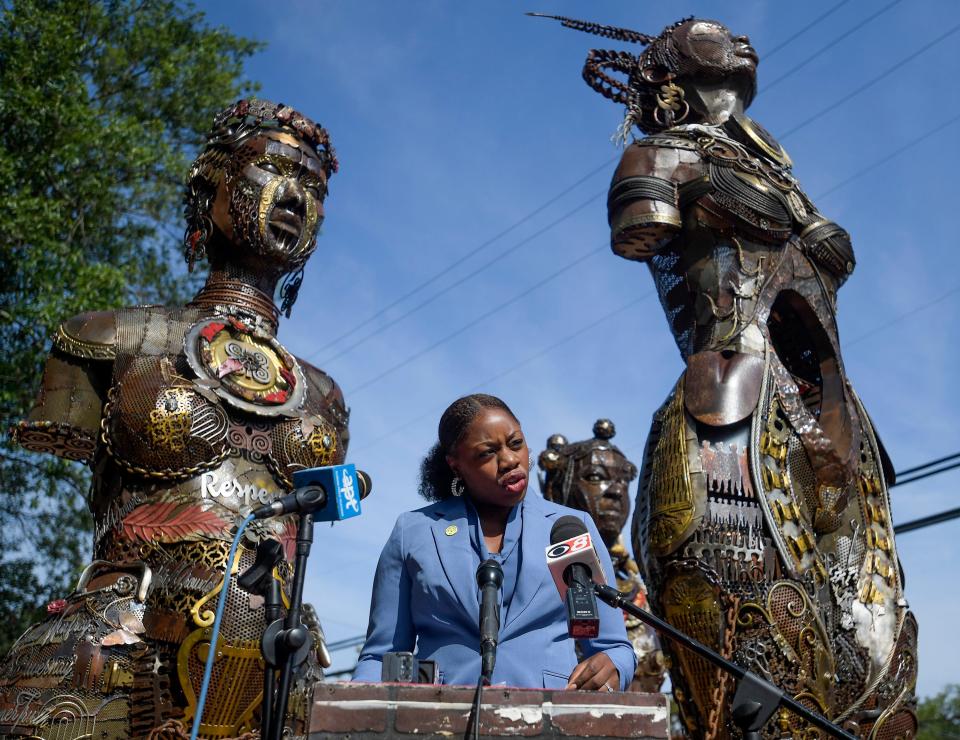Alabama Department of Public Health approves birth center regulations
The Alabama Department of Public Health (ADPH) Thursday approved a set of rules that would require birthing centers to have oversight by a physician or medical director at its State Committee of Public Health meeting in Montgomery Thursday.
The rules proposed would also require birth centers to be within 30 minutes of a hospital with OB-GYN services.
Dr. Scott Harris, Alabama’s state health officer, said Thursday that the department didn’t make changes that were “more restrictive,” so they could continue with the process without having to go back to another period for public comments.
“We can continue with this process,” he said. “More restrictive changes would’ve reset the clock and we would have to come back for another public comment.”
A birth center serves as a specialized healthcare facility that follows a midwifery and wellness approach. Birthing centers are distinct from hospitals, operating independently, according to the American Association of Birth Centers.
Birth center operators and midwives say the state makes it difficult to open and operate birth centers, particularly in rural areas that have struggled to attract medical staff.

Three birth centers and the Alabama affiliate of the American College of Nurse-Midwives sued ADPH last week, alleging the department’s rules make it impossible to operate birth centers in the state. Among other allegations, the lawsuit said that ADPH forces birth centers to apply for hospital licenses, even though they do not meet the criteria for hospitals. ADPH has not publicly commented on the litigation.
Kim Taylor, a midwife based in Birmingham, attended Thursday’s meeting and said she was disappointed to see the rules pass without input from the midwifery community.
She said that she did not know what changes were made based on the public comments provided, nor was she able to see the ADPH responses to those comments.
“Maybe we could answer some questions that they had. Maybe we could review the changes that they made to the rules,” Taylor said. “We are the people who matter.”
Harris said that there were changes made to medical terminology and updated timeframes, but he did not go into details.
“Those are substantive and not restrictive so it allows us to continue with this process,” he said.
The last set of proposed rules that was updated last year didn’t address certified professional midwives, but Harris last month said that was not an attempt to exclude them from the practice and called it a misunderstanding.
In the new proposed rules, certified professional midwives are included and they can work in birthing centers as long as they have physician oversight.
Taylor said that without knowing the changes that were made on Thursday, it’s unclear how that will affect her practice moving forward.
“What’s the agenda?” She asked. “It’s not for being passionate, or actually paying attention to improving birth outcomes and maternal and fetal mortality in this state.”
Midwifery was effectively banned in Alabama from 1976 to 2017, but the field has grown. Advocates say the practice could help in a state with high infant and maternal mortality, and where maternal care can be difficult to access.
Only 21 counties are considered to have access to maternity care, according to the March of Dimes. The remaining counties are considered to be either a maternity care desert or has low access to care. About 1.6 million Alabamians, roughly one-third of the state’s population, live in those areas.
According to an analysis from ADPH, 16 the 54 counties considered rural had hospitals providing OB-GYN services in 2019. That number decreased from 1980, where only 10 rural counties did not have a hospital providing OBGYN services.
Alabama Reflector is part of States Newsroom, an independent nonprofit website covering politics and policy in state capitals around the nation.
This article originally appeared on Montgomery Advertiser: Alabama Department of Public Health approves birth center regulations

